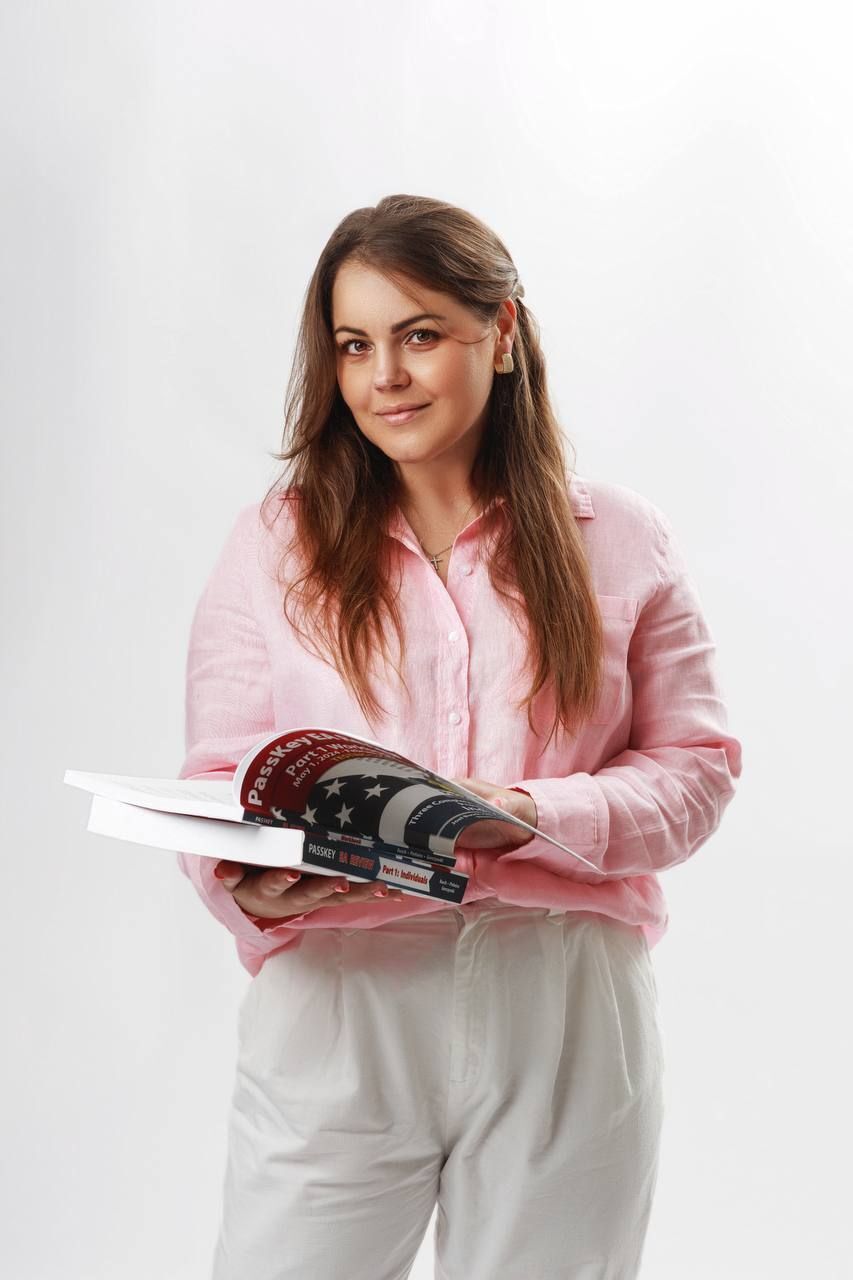An accountant with global experience and cultural fluency helps overlooked founders build financial systems they understand and trust
For many small business owners, at times the numbers are the hardest part of owning and operating a business. Tax laws are mystifying for even the bravest among us, financial statements a mystery, and traditional accounting can lack a sense of the humanity behind business.
So, it's increasingly fashionable to have a broader philosophy. One that is specific to the context, language and experiences of the founder. The 2024/2025 Global Entrepreneurship Monitor reports: fear of failure is one of the largest deterrent for nearly half of all potential entrepreneurs. User-friendly financial tools can lower that fear and help them move forward with clarity.
The shift is about making them meaningful. The OECD calls inclusive entrepreneurship a driver of sustainable growth. Founders who understand their finances have more peace, more power and grow faster.
One professional who’s been shaping this approach across multiple countries is Karyna Moroz. She has dedicated her career to providing tailored financial services to a diverse clientele across Europe and USA, enriching her with a global perspective on business and finance. A member of the American Finance Association and the American lnstitute of Certified Public Accountants, two of the most respected organizations in the field, she also contributes to the field through published research on finance and international taxation.
As the founder and CEO of Tax Advice & Accounting LLC, Karyna is now using her diverse international experiences, which endowed her with a unique perspective on global financial practices. Rather than relying on abstract dashboards or generic advice, she builds custom templates and visual workflows that help clients truly understand their numbers, from small retailers to freight firms navigating fluctuating costs.
>Why traditional accounting doesn’t work for everyone
Financial services in many countries have been rooted in the size of corporations or the longevity of legacy institutions. Women, immigrants, and first-time founders, especially small business owners, commonly encounter advice that is either too generic or overly technical to be helpful.
“Sometimes people come in with a plan, but the numbers feel like too much,”Karyna says.“Often, what makes difference is just sitting down and talking it through.”
That kind of clarity is especially important for founders working across different regulatory systems. Over the years, Karyna has served as a CFO and financial consultant for companies in the U.S., Sweden, Denmark, Ukraine, and Lithuania helping them reconcile different accounting practices and build processes that reflect how their businesses operate.
One example is her work with the small transport companies in the USA, which especially need financial expert support to stay profitable with the real cash-flow prognosis. The companies that operated without external investors or oversight struggled with internal reports that didn’t match reality: revenue appeared overstated in some months and understated in others, incorrect distribution of expenses, and incorrect accounting of fixed assets.
Karyna stepped in to redesign their financial workflows using Generally Accepted Accounting Principles (US GAAP), that requires detailed tracking of revenue recognition, matching expenses to actual income cycles, and separating operational from investment activities, taking into account tax legislation for future tax planning.
Within a year, the company’s forecasts became reliable, its financial statements were ready for strategic decision-making, and further steps to expand activities through self-financing are planned, all while remaining lean and financially resilient.
For small companies, aligning with US GAAP can be daunting as it demands structure, consistency, and audit-readiness, even without the pressure of public reporting. Karyna suggests translating those requirements into manageable steps, helping the team understand not just what to report, but why it matters.
>What inclusive accounting actually looks like
lnclusive accounting isn’t about simplifying complex rules. It is making those rules understandable and actionable. It means explaining concepts in plain language, adapting strategies to fit the client’s background, and building systems that grow with their business.
“You can’t apply one-size-fits-all models to someone who’s doing business between, say, Ukraine and the U.S.,”says Karyna Moroz, whose clients often operate across jurisdictions. “You need to connect the dots between systems, and make sure the client understands what’s happening at each step.”
That’s exactly what she does at her firm, often guiding clients step-by-step through everyday processes like calculating depreciation or planning for quarterly taxes. And it’s not just early-stage startups who benefit. When working with a fast-growing logistics company in Florida, she introduced monthly financial close routines, standardized reconciliations, and reporting workflows that gave the business real-time clarity, replacing reactive guesswork with proactive control.
Her approach is shaped not only by global experience but also by formal training. She holds certifications in federal taxation, QuickBooks and bookkeeping, and her research on international tax issues informs her down-to-earth way of explaining complex topics.
Some years before, she also built full-scale financial systems for companies in the construction and logistics sectors. In fact, she designed reporting and risk models from the ground up. This systems-based mindset is something she brings to every small business she now advises.
>How founders can find the right financial partner
Not every accountant will take an inclusive approach, but asking the right questions can help you find one who does. Look for someone who:
-
Explains things clearly without jargon. As a professional accountant, Karyna Moroz recommends noticing if they replace technical terms with relatable examples, such as comparing budgeting to personal financial planning
-
Asks about your long-term goals, not just your tax deadlines
-
Has experience with businesses like yours (industry, size, cultural background)
-
Encourages questions and takes time to answer them. Karyna recommends choosing someone who values open dialogue and actively supports your understanding
-
Offers flexible services that grow with your business. Karyna points out that many small businesses outgrow their accountant’s model. Ask whether they offer part-time CFO services, system upgrades (like transitioning from Excel to QuickBooks or Xero), or international tax support. An accountant with a growth mindset will already have upgrade paths built in

As Karyna Moroz puts it, “Your accountant shouldn’t just be someone who files your returns. They should be someone you can call when you’re making a hard decision, someone who helps you understand the risks and the numbers behind them.”
Inclusive accounting is just one example of a more general development of human centred business support.) From financial and digital tools designed for solo entrepreneurs to advice and consulting, services that promote the themes of clarity, empathy and access are helping small businesses not just survive, but grow. Nor is this a matter of dumbing the work down. It is meeting people where they are and helping them develop the skills, systems and confidence that can allow them to move forward. Because no one really goes into business for themselves to become an expert in tax law. But they don’t with the help that arrives.







